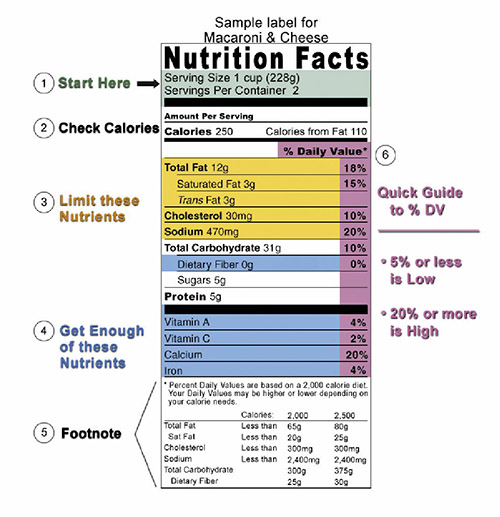
March is National Nutrition Month®, an annual campaign created by the Academy of Nutrition and Dietetics. During the month of March, they invite everyone to focus on the importance of making informed food choices, developing sound eating and physical activity habits.
Easier said than done in our world, where most of us are working, which often means not-so-healthy foods during the week, and then come Shabbos! “As I explain to non-Jews,” said George Matyjewicz, PhD, community liaison and consultant at St. Mary’s General Hospital, “on Shabbos our meals are like what you prepare for Thanksgiving —except we do it twice a week, every week! Start with wine for Kiddush, then challah, then fish, soup, salad, main meal and dessert—with wine throughout the meal and most likely soda to drink. And the meals are all freshly prepared each week by our wonderful wives who also take care of the children, household and probably work!
And on Shabbos day we have that mandatory cholent—the beef stew that has been cooking overnight—rich in beef, vegetables and beans. Then after the meal, most of us take a Shabbos nap or maybe sit and learn Torah until the next meal. Exercise probably consists of walking to shul or to somebody’s house for the meal.”
Such is the life of shomer Shabbos Orthodox Jews—which is why obesity can creep up on us very easily. Then what?
“It doesn’t have to be like that,” said Matyjewicz. “Yes, we do have a lot of food, but we could practice portion control. I personally lost 4” off my waist with portion control, and I don’t feel hungry. Sometimes I have to explain to our host when we eat out that it’s not their cooking, it’s me.”
Elaine Ashe1, MS, RDN, director of dietary services at St. Mary’s General Hospital, offers this valuable advice:
1. Vary your diet: Eat a variety of nutritious foods every day from all food groups and keep hydrated. Learn how to read nutrition facts panels and practice portion control. Keep in mind that there are nutrition guidelines for every stage in life—children, teens, adults under 40, pregnancy, adults 40-60, adults over 60.
2. Meal planning: Enjoy healthy eating at school, work and home. Set aside one day to plan and prepare your lunches for the week. Use a grocery list to shop for healthy foods. Watch what you are eating when traveling or eating out.
3. Cook and prep: Cook your own meals so that you can control what is in them. Reduce your intake of salt and sugar. USDA dietary guidelines have decreased the recommended limit for added sugars to no more than 10% of daily calorie intake. And there are over 60 names for sugar! Use the number “3” as a guide. If a word for sugar is one of the first three ingredients listed or if there are more than three names for sugar on the list, then the product probably contains too much sugar.
4. Visit an RDN. Ask your doctor for a referral to a registered dietitian nutritionist. Receive personalized nutrition guidelines to meet and maintain your goals. Attend classes in your community where you can learn what others are struggling with and how you all can overcome these struggles.
St. Mary’s General Hospital has offered and will continue to offer seminars on healthy eating. “George Matyjewicz and I have been discussing some upcoming seminars,” said Elaine Ashe. “We are planning a seminar jointly with an endocrinologist to discuss healthy eating habits and still enjoy those Shabbos meals. The real concern is if you don’t watch what you eat, pretty soon you may suffer with obesity, diabetes, thyroid issues, hypertension or other such diseases, where you will need to see an endocrinologist. Then the mandatory cure is worse than watching what you eat today! Even if you go with bariatric surgery, you still have to prove that you can control your eating before insurance will approve the surgery.”
“St. Mary’s has seminars on a regular basis on many different topics,” said Matyjewicz. “Our Senior Link program has 2,000+ members in the Northern NJ area and offers a wide variety of senior-specific health programming including monthly meetings, screenings, health forums, support groups, trips and much more. And, since many families have the honor of caring for their parents, these programs could be a big help.
More importantly, we are trying to develop programs in specific areas that will benefit our communities—such as OB/GYN, musculoskeletal disorders, heart issues, strokes, diabetes, breast cancer, colon cancer and more.”
For a tour or more information about St. Mary’s General Hospital, or to join the mailing list, please email George Matyjewicz at [email protected].
1 Elaine C. Ashe, MS, RDN is Director of Dietary Services at St. Mary’s General Hospital and has been in clinical nutrition since 1995. She has a BS in Home Economics-Nutrition, Montclair State University and a MS in Clinical Nutrition, New York University. She has been a member of the Association for Healthcare Food Service NJ since 2008 and a Board member since 2018. She is also a member of Academy of Nutrition and Dietetics, NJ Academy of Nutrition and Dietetics and Dietetic Practice Group-Clinical Nutrition Management.










